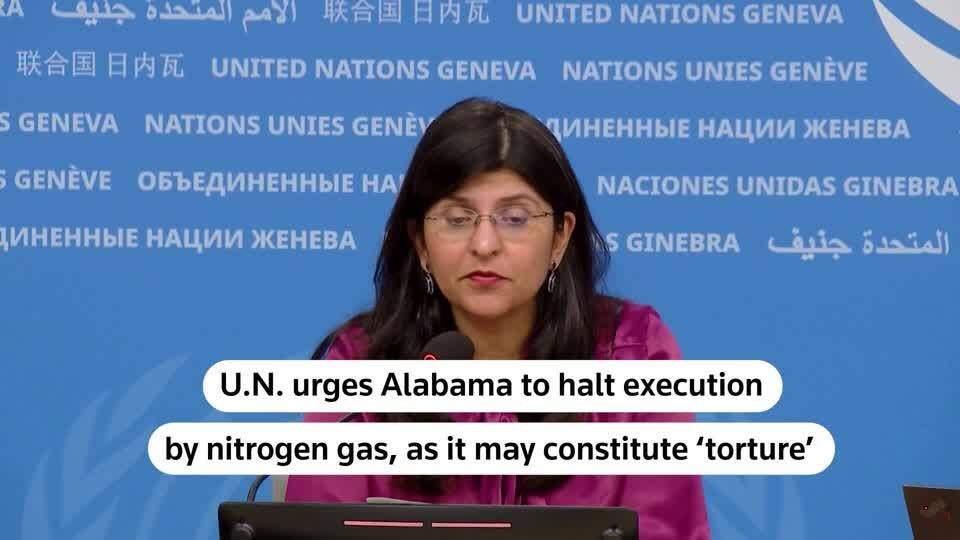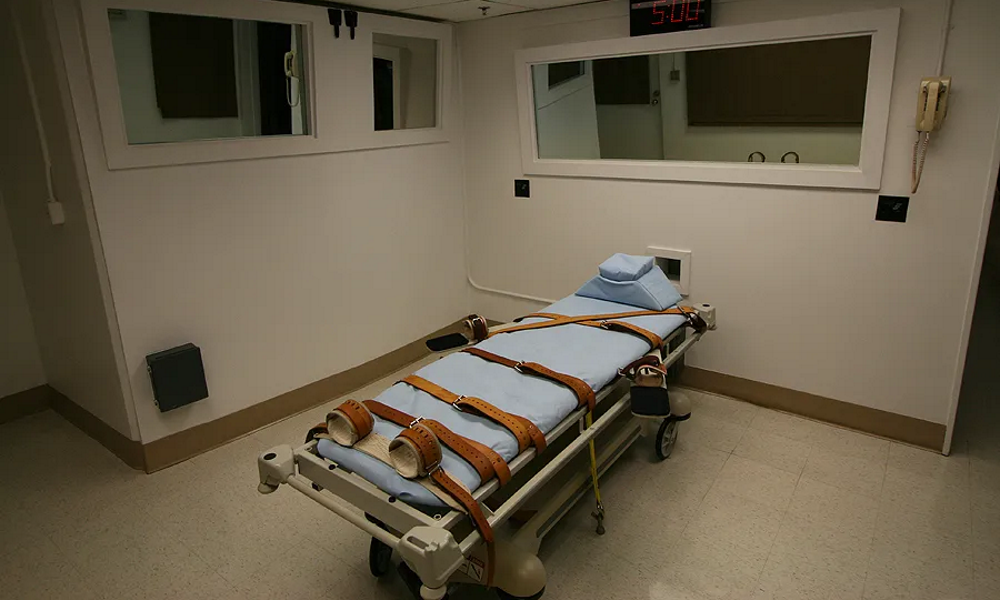
U.N. Urges Alabama to Halt First Planned Execution by Nitrogen Gas Asphyxiation, Citing Human Rights Concerns”
The United Nations Human Rights Office has called on the U.S. state of Alabama to suspend its first scheduled execution using nitrogen gas asphyxiation, asserting that the method may constitute torture and violate international commitments. Kenneth Smith, convicted for a murder-for-hire offense in 1988, is set to be executed on January 25 using this novel method. The UN’s appeal is based on concerns related to potential breaches of human rights, including the prohibition of torture and the right to effective remedies.
Key Points:
Method of Execution:
- Kenneth Smith’s execution is scheduled to be carried out by binding a mask to his face, connected to a cylinder of nitrogen intended to deprive him of oxygen.
- Alabama, along with other states, has explored alternative execution methods, such as nitrogen gas, due to challenges in obtaining traditional lethal-injection drugs.
UN’s Human Rights Concerns:
- The UN Human Rights Office expressed serious concerns that Smith’s execution using nitrogen gas asphyxiation could breach the prohibition on torture or cruel, inhuman, or degrading treatment or punishment.
- The UN highlighted that such actions may violate international human rights treaties to which the United States is a party.
Right to Effective Remedies:
- The UN emphasized Smith’s right to effective remedies and noted that his appeal against execution had not been concluded.
- The call to halt the execution is rooted in the obligation to ensure that individuals facing the death penalty have access to legal processes and remedies.
Lack of Sedative Provision:
- The UN expressed concern over Alabama’s execution protocol, which does not include provisions for administering a sedative before execution.
- The absence of sedation is particularly troubling, as it contrasts with the American Veterinary Medical Association’s recommendation for euthanizing large animals.
Challenges in Lethal Injection Protocols:
- U.S. states have encountered difficulties in procuring barbiturates for lethal injection, partly due to European bans on selling drugs for execution purposes.
- Some states, including Alabama, Mississippi, and Oklahoma, have explored alternative methods such as gas-based protocols.
Global Trend and UN Advocacy:
- The UN Human Rights Office expressed worry over the increasing adoption of nitrogen gas as a method of execution and has consistently raised the issue with U.S. federal authorities.
- Other UN experts have joined in expressing concerns over the planned execution, reflecting a broader international scrutiny of the death penalty.
U.S. Execution Statistics:
- Amnesty International reported that the United States executed 18 people in 2022, highlighting the ongoing debate and challenges associated with capital punishment in the country.
The UN’s call to halt Alabama’s first planned execution by nitrogen gas underscores the international community’s scrutiny of the methods and human rights implications of capital punishment. As discussions on execution protocols evolve, the UN continues to advocate for adherence to international human rights standards, emphasizing the prohibition of torture and the importance of effective legal remedies for individuals facing the death penalty. The case of Kenneth Smith adds to the ongoing global dialogue on the ethical and human rights considerations surrounding capital punishment.

